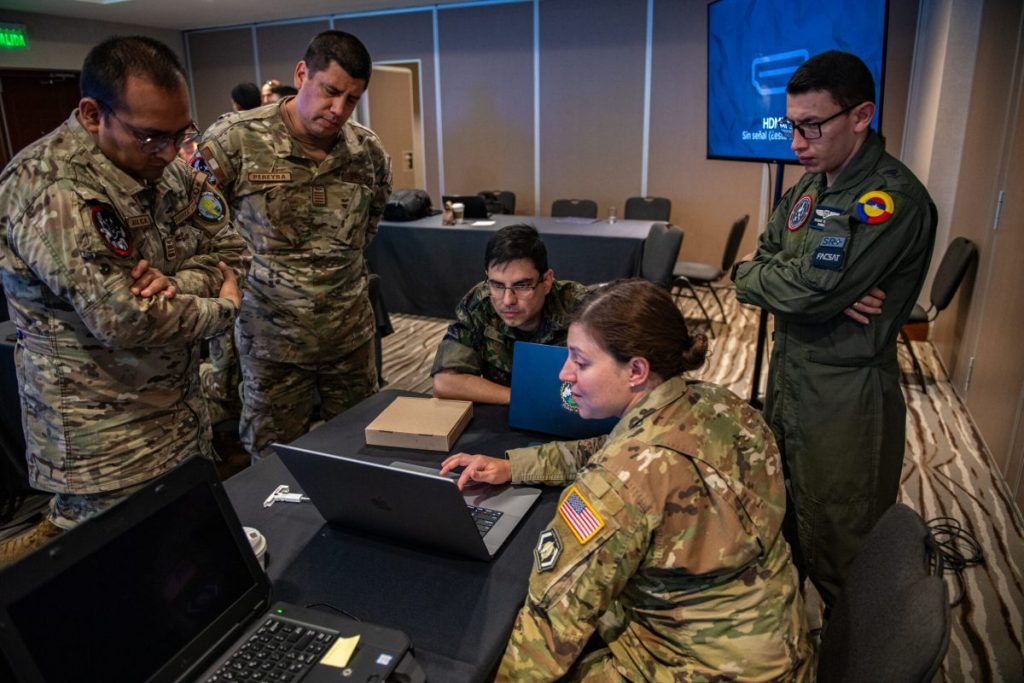
Space Force refining commercial backup plan for military satellites (Image Credit: Space News)
WASHINGTON — The U.S. Space Force is moving closer to establishing a commercial reserve program aimed at leveraging private sector resources for national security, and continues to fine-tune the details with satellite operators and other space companies.
The initiative, called the Commercial Augmentation Space Reserve (CASR), would allow the military to tap into commercial space assets, such as satellites and communication systems, during crises or emergencies.
“We’re still getting feedback from industry,” said Col. Richard Kniseley, who leads the Space Systems Command’s Commercial Space Office.
Kniseley’s office is reviewing over 80 submissions from companies after a recent request for information, reflecting growing industry interest but also concerns about the program’s structure. “Companies have asked for a feedback loop to address issues as we finalize the language,” Kniseley told SpaceNews.
The program would function through pre-negotiated contracts with commercial companies, ensuring the U.S. government has priority access to space infrastructure when its own systems are strained. These contracts would help guarantee access to services like satellite communications or monitoring space debris without needing to scramble for support during a critical moment.
A reserve of commercial satellites would provide a critical backup as forces become increasingly reliant on satellites for battlefield operations. The Pentagon and intelligence agencies expect military satellites to be targeted by adversaries using cyberattacks or electromagnetic warfare to disrupt U.S. capabilities.
Building reserve during peacetime
Kniseley said it’s important to form these partnerships before they are needed, “so commercial systems are somewhat integrated with military networks.” This preparation would enable a smoother transition if commercial services are called upon in an emergency.
In the coming months, some of the companies showing interest in CASR will participate in military exercises and wargames focused on space operations, helping refine how the reserve would operate in real-world scenarios. “We’re planning our own CASR war game in the national capital region early next year,” Kniseley said.
Initial contracts will likely focus on space domain awareness services, where private firms provide tools to monitor activities in orbit — tracking satellites, debris, and potential threats. Another priority is securing satellite communications services for the Indo-Pacific region, a key strategic area where access to reliable space-based communications could be crucial in a future conflict.
Industry concerns and contract provisions
One of the hurdles in finalizing CASR agreements has been industry concerns over “denial of service” clauses. Under such provisions, companies under contract with DoD might be required to halt service to other customers during a conflict if the government activates the commercial reserve. For instance, if there is a military need, the Defense Department could demand priority access over commercial clients.
To address these concerns, the Space Force is considering linking denial-of-service restrictions to the U.S. sanctions list. This would limit such restrictions to sanctioned entities, keeping them within established legal frameworks while reducing the risk of alienating commercial customers. “We’re still working with DoD space policy on what that looks like,” Kniseley noted, adding that legal teams and private insurance companies are involved in these discussions.
The first CASR contracts won’t cover all the issues flagged by industry, such as denial of service or compensation for damaged satellites during wartime. “We know there’s more work to do, especially with how to handle existing contracts and financial protection,” Kniseley said. However, the Space Force plans to onboard the first wave of CASR members early next year and continue refining the program as it rolls out.
Different services will require different contract structures, Kniseley emphasized. “It’s not one-size-fits-all. We’ll tailor agreements based on specific mission requirements and company capabilities.”
Congressional committees have expressed support for CASR, though lawmakers have requested studies on financial protection for companies whose assets might be damaged during conflicts.
The Space Force is taking an incremental approach, Kniseley said. Early contracts will not include all planned provisions as the military continues to refine terms around service restrictions and vendor compensation. Despite these open questions, the program is set to begin accepting its first commercial members in early 2025.








